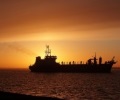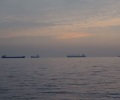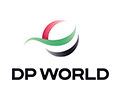S Korea cleaner marine fuels market to grow on new ECA

Demand for cleaner bunker fuels, including marine gasoil, in South Korea is expected to increase further, with fuel bills for shipowners likely to rise, as a result of plans to create an impending emission control area, or ECA, industry sources told S&P Global Platts.
South Korea is among the first few Asian countries to impose a 0.1% sulfur fuel limit on oceangoing vessels.
This comes as South Korea’s demand for cleaner fuels had already jumped due to the implementation of the International Maritime Organization’s global sulfur limit rule for marine fuels from January 1 and China’s ECA launched last year.
“At the moment, there is already 0.1% MGO demand from vessels going to ECA regions in China and North America. With South Korea’s ECA, demand will increase,” a trader based in Seoul said.
“The price gap between 0.1% LSMGO [low sulfur marine gasoil] and 0.5% MGO will widen. Currently, the gap is between parity to $10/mt,” another trader said.
The premium for South Korea delivered 0.1% LSMGO over delivered 0.5% MGO assessments averaged $2.90/mt from January 2-15, slightly lower than $3.21/mt in December, Platts data showed. Platts had lowered the sulfur limit in Asian MGO assessments from 1.5% to 0.5% on December 2, 2019.
With the IMO rule starting this year, demand and prices for 0.5% MGO have risen as it is sought as an alternative to 0.5% LSFO amid tight supplies for the compliant fuel. Currently, only SK Energy and Hyundai Oilbank are supplying 0.5% MGO, while all four refiners — SK Energy, Hyundai OIlbank, S-Oil and GS Caltex — are able to supply 0.1% LSMGO.
“Shipowners will be in a worse fix than before [having to pay more for compliant fuel],” a South Korea-based supplier said.
South Korea will establish its ECA and implement the 0.1% sulfur limit fuel rule in stages from September this year and fully from January 2022, an official at South Korea’s Ministry of Ocean and Fisheries told Platts Wednesday.
Under the Special Act on Air Quality Improvement in Port & Other Areas enacted in 2019, all ships are required to switch to 0.1% sulfur fuel when berthing at the country’s five major ports, — Busan, Ulsan, Incheon, Yeosu-Gwangyang and Pyeongtaek-Dangjin.
From January 2022, all ships must use 0.1% sulfur fuel when navigating or berthing at the five ports and within the country’s territorial waters, the official said.
Under the law, any ship that violates the 0.1% mandate will be punished with up to one-year imprisonment or a Won 10 million ($8.650 million) fine, he said.
The Special Act stipulates a series of measures, including setting stricter marine fuel standards, restricting vessel speed, prohibiting old gasoil vehicles from entering port areas, and encouraging port equipment and yard tractors to switch from gasoil to LNG.
South Korea has already put some of its emission control programs in place.
In December 2019, the country had put in place a voluntary speed reduction zone in some of its ports for certain ship types.
S Korean refiners moves
South Korea is a mid-size player in the Asian bunker fuel market with annual marine fuels sales of about 7 million-9 million mt.
Its refiners are gearing up for new investments as environmental rules in shipping are becoming stricter.
South Korea’s biggest refiner SK Innovation, for one, said its refining subsidiary SK Energy will start operations at the new 43,000 b/d vacuum residue desulfurization unit at its 840,000 b/d Ulsan refinery in April, to increase low sulfur oil products output.
The start up of the unit will allow the refiner to produce up to 200,000 mt/month of LSFO, S&P Global Platts reported previously.
S-Oil has also completed its new residue upgrading complex in November last year and has been supplying around 80,000 mt/month of blended LSFO in their term contracts.
Meanwhile, Hyundai Oilbank has upgraded all of its secondary units and has been operating a 80,000 b/d solvent deasphalting process at its Daesan Plant since September 2018, which allows it to use heavy grades to produce cleaner, lighter fuels.
The company is currently supplying around 100,000 mt/month of the low sulfur bunker fuel, a company source told Platts recently.
LSFO availability from the refiners seem adequate for now, market sources said, adding that ample supply of the product and barge availability remains uncertain as stricter environmental rules in shipping loom.
Source: Platts

 Hellenic Shipping News Worldwide Hellenic Shipping News Worldwide, Online Daily Newspaper on Hellenic and International Shipping
Hellenic Shipping News Worldwide Hellenic Shipping News Worldwide, Online Daily Newspaper on Hellenic and International Shipping























 PG-Software
PG-Software